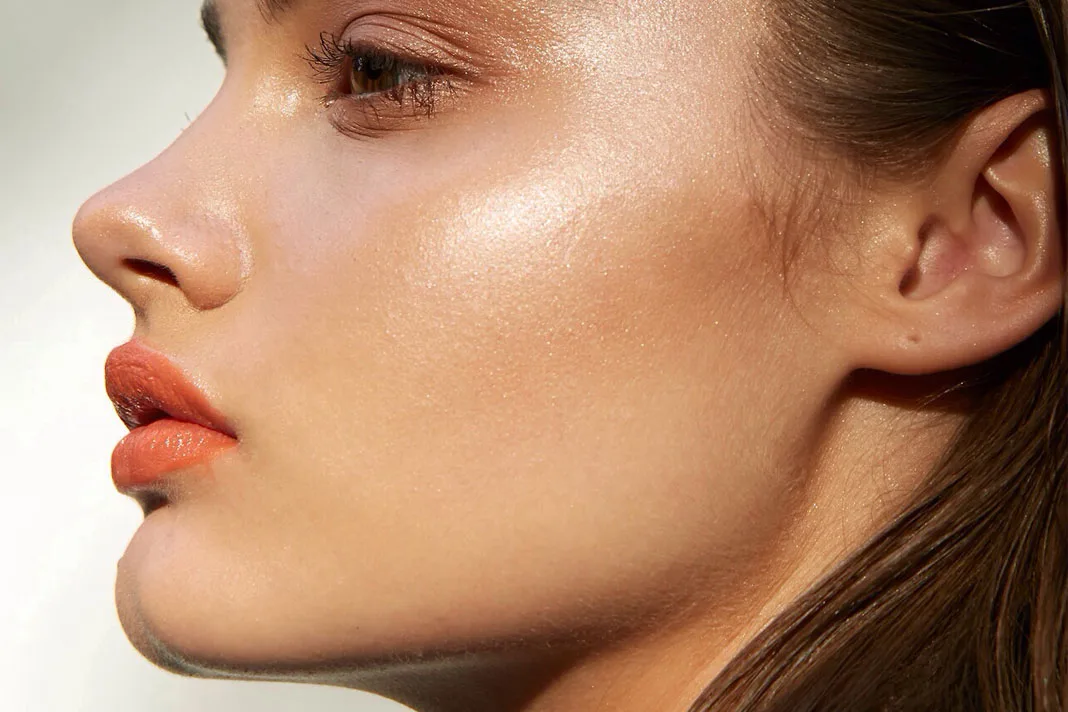Get your complexion in check for the summer with our skin supplement guide
Words Dr Michael Barnish, UK doctor for Reviv Ltd
The skin is an organ that protects the body from the environment so it needs to be maintained and kept healthy. Scroll down for our definitive guide to the six best complexion-loving skin supplements.
VITAMIN A
How does it benefit the skin?
Vitamin A has excellent anti-ageing properties.
How does it work?
Vitamin A acts on the cells of the skin to improve its structure. If the skin’s structure is normal then it will function in a normal way and this is how it can help in managing rosacea and acne. It is anti-ageing, as it helps more collagen be deposited into the skin, thus reducing or preventing wrinkles.
Vitamin A also protects the skin from UV by improving the structure of the cells that sit in the top layer of the skin, known as the epidermis. UV damage can speed up skin ageing, so by protecting skin it will maintain its structure and function.
How do I include it in my diet?
1 cup of raw sliced carrots, 1 sweet potato or 1 cup of kale would supply you with more than your RDA (recommended daily allowance). Broccoli, spinach, butter, eggs or liver also have good vitamin A levels.
Topical creams can contain retinols/vitamin A. Always take advice on this as the skin can become inflamed if it is not accustomed to larger doses, particularly if skin is exposed to UV rays at the same time. In some cases vitamin A-rich creams should only be applied a couple of times a week at first and overnight when UV exposure is low.
Who needs it?
Anybody who wants to maximise their skin health and appearance should consider topical formulations. However, you should always seek advice with the provider of the skin range. Some vitamin A creams are prescription only but there are lots of different brands and suppliers. People with hyperpigmentation, rosacea or acne may particularly benefit from increased vitamin A levels.
VITAMIN C
How does it benefit the skin?
Vitamin C acts to restore, repair and protect the skin. It does have some anti-ageing properties as well.
How does it work?
Vitamin C has a role in collagen synthesis and is vital for skin health and to prevent ageing. It is also a powerful antioxidant. It helps repair damage within the cells of the skin and can enhance the protective work of sunscreens to prevent UV damage. However, vitamin C is not a sunscreen.
How to include in diet?
Foods that provide more than 100% of the RDA are one large orange, ½ cup raw red peppers and 1 cup of kale. Other vitamin C rich foods include brussels sprouts, broccoli, strawberries and grapefruit. Citrus fruits also contain good levels of vitamin C.
Topical vitamin C creams are effective and should be considered for the majority of daily skincare regimes, but always seek advice from a skincare representative first.
Who needs it?
Everybody. The protective and repairing benefits of this vitamin are important for maintaining skin health. Most people would benefit from a vitamin C cream within their topical skincare regime, however always seek advice for this.
Tips for supplementation:
To really reach the cells and enhance these protective and anti-ageing properties vitamin C can be administered via an intravenous drip. Reviv is the global leader in IV wellness therapies and offers vitamin drips, of which several are vitamin C rich. The benefits of this are instant hydration, as 100% of the vitamin C reaches your circulation instantly. This allows for generous cellular uptake of the vitamin and enhanced results.
VITAMIN D
How does it benefit the skin?
It maintains normal skin and hair structure and function. It also reduces and manages inflammation within the skin, particularly with people suffering from psoriasis.
How does it work?
Vitamin D in its active form regulates the skin’s structure and function, therefore the skin is more likely to behave in a normal, healthy way. Vitamin D acts on inflammatory pathways to help reduce inflammation within the skin. One of the roles of vitamin D is to regulate the rate of growth of skin cells (keratinocytes).
Vitamin D can help reduce symptoms of rosacea and acne. It increases the rate of wound healing, exfoliates the skin, optimises UV protection, reduces pigmentation, decreases sebum production and improves skin hydration.
How to include in diet?
For the majority of people vitamin D primarily comes from sun exposure. UV B radiation stimulates vitamin D3 in the skin into its active useful form.
Some foods do provide vitamin D. Fish such as tuna, mackerel and salmon and cheese, such as egg yolks all provide vitamin D. Some foods are artificially fortified with vitamin D, often cereals or dairy products.
Who needs it?
Many people in the UK lack good sunlight exposure during the winter and supplementation can be a great way to increase vitamin D levels.
People with osteoporosis and women who are post-menopausal should have good vitamin D production to protect their bone health. They should consider their doctor’s advice if wanting more information on how to maintain their vitamin D levels.
Tips for supplementation:
Oral supplementation and exposure to sunlight helps to improve vitamin D levels. Taking a multivitamin or vitamin D supplement can help maintain levels during the winter months.
VITAMIN E
How does it benefit the skin?
Vitamin E is a major antioxidant that acts within the skin. It protects the skin from free radical damage and UV radiation and as an anti-inflammatory within the skin.
How does it work?
Vitamin E prevents inflammatory damage after UV exposure. Through being an antioxidant it can repair free radical damage within the cells, allowing them to function normally.
How to include in diet?
Topical vitamin E creams are an effective way of administering vitamin E into the skin and offering protection from sun damage. However, it is not a sunscreen. Again always consult the skincare brand’s representative regarding vitamin E creams.
Foods rich in vitamin E include almonds, spinach, kale, swiss chard and raw seeds.
Who needs it?
Everyone can benefit, however, people suffering from inflammatory skin conditions, such as psoriasis, rosacea and sunburn can benefit hugely from vitamin E.
Tips for supplementation:
Supplementation of vitamin E, alongside vitamin C is thought to enhance the protective benefits more than taking them alone. Multivitamins can also offer vitamin E supplementation.
ZINC
How does it benefit the skin?
It can help restore skin function and therefore can help prevent congestion within the skin and can help stabilise and manage acne. It can also protect the skin from UV damage, which can result in faster ageing of the skin.
How does it work?
6% of the body’s zinc is found in the skin. It works by stabilising skin cell function and maintains their membranes. It is also important in the cell cycle, which is the cycle of constant cell renewal. Healthy young skin should have a skin cycle of six weeks.
How to include in diet?
Topical creams that contain Zinc can have a role in acne treatment. This should always be discussed with the brand representative.
The most zinc rich food is spinach, followed closely by beef. Kidney beans, flax seeds, pumpkin seeds, oysters and watermelon seeds all contain zinc.
Who needs it?
Individuals suffering from acne may benefit from a topical zinc cream.
Tips for supplementation:
Supplementation is usually not recommended unless deficient diet of zinc rich foods. Most multivitamins contain Zinc. RDA of Zinc is 11mg/day for men and 8mg/day for women.
BIOTIN
How does it benefit the skin?
Severe biotin deficiency can result in hair loss and brittle fingernails. This deficiency is rare and the scientific evidence of supplementation with biotin is loosely based on a few studies that showed improvement in certain groups of people with hair loss and brittle fingernails. There is no scientific evidence that increasing biotin levels in a healthy person with no deficiency can help maintain healthy hair and nails. Having said this there is potential for it to help.
How does it work?
Part of the B-complex vitamin family. It is essential for cellular metabolism.
How to include in diet?
Eggs, Whole grains, almonds, nuts and legumes (peanuts) are a good source of biotin. Milk and meat are also high in biotin.
Who needs it?
Everybody
Tips for supplementation:
Recommend daily intake in 30 micrograms per day in adults. B complex vitamins are an important group of vitamins essential for many bodily functions and providing enhanced immunity and energy via the production of red and white blood cells.
Orally only approximately 50% of these vitamins reach the cells and a lot are excreted by digestion. The intravenous or intramuscular route allows all the vitamins access to where they need to be and is a safe and effective method.







